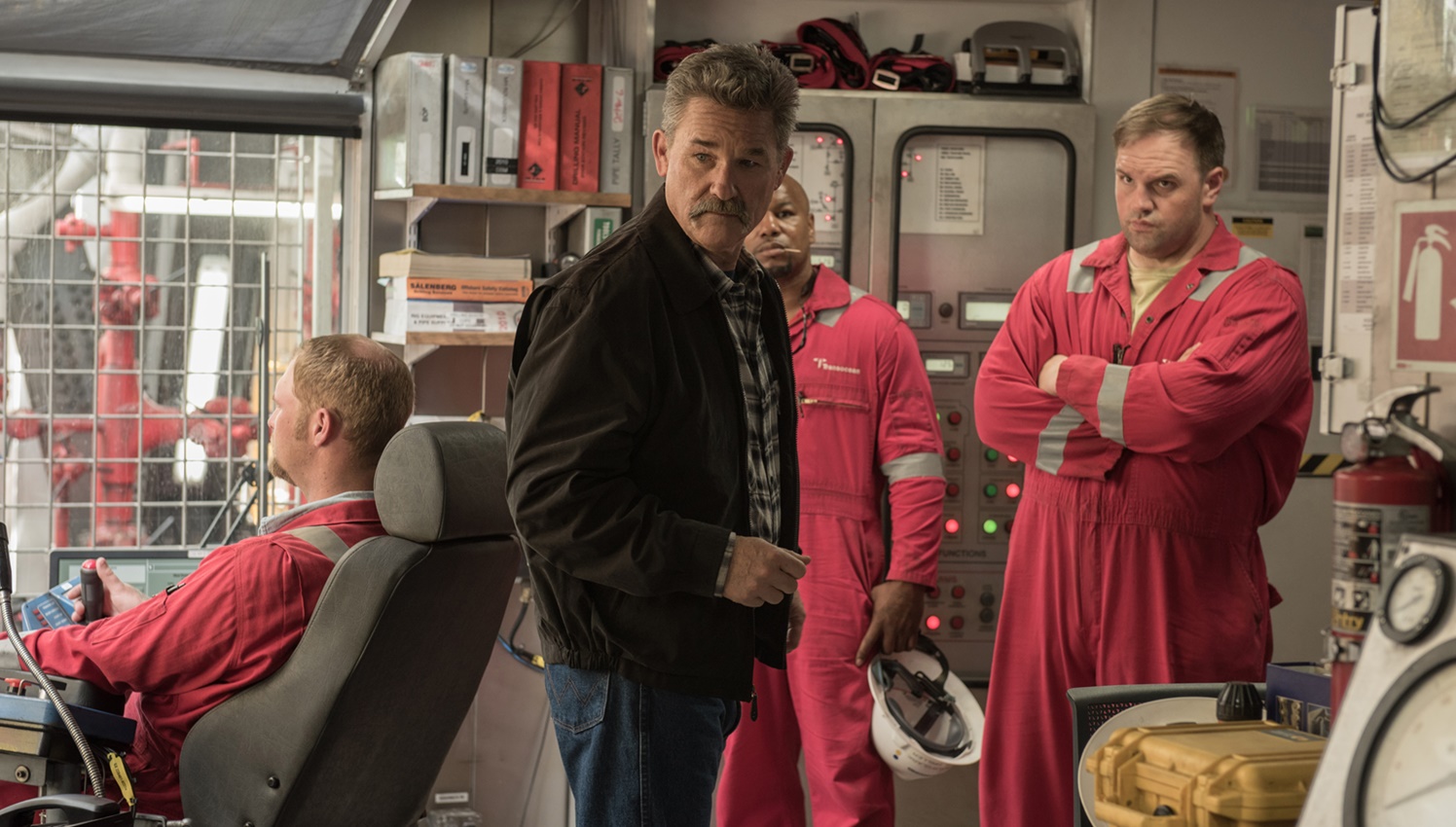
Deepwater Horizon
Dustin Chase
The latest Peter Berg / Mark Wahlberg collaboration proves the filmmaking duo have discovered a formula that has a broad mainstream appeal. It started with Lone Survivor, based on a true story, with Wahlberg playing an American war hero. Another extreme circumstance, another heroic situation, this time Wahlberg is saving co-workers during the Deepwater Horizon blowout in 2010. Next year Wahlberg and Berg will re-team a third time to pray on American sensibilities as they exploit the Boston marathon bombings. Technically speaking, “Deepwater Horizon” is an astonishing achievement from ear drum rattling sound editing to the superb explosive special effects. It’s this generations “Towering Inferno” (the two are even quite similar in plot and setup).
The moment Transocean employee’s Jimmy Harrell (Russell) and Mike Williams (Wahlberg) return to what they call the “well from hell”, concerns are heightened over BP’s accelerated drilling schedule. “You sent the test team home before they could tell you something you didn’t want to hear,” Harrell, offshore installation manager, spouts at BP company man Donald Vidrine (Malkovich). Despite Harrell’s warnings, the 126 crew on the semi-submersible offshore oil drilling rig named Deepwater Horizon, proceed. The numerous faults and failures of various institutions results in the largest oil spill disaster in the Unites States. 41 miles off the coast of Louisiana the men and woman aboard must fight for survival as the rig explodes.
Redefines the term pulse pounding as this generations “Towering Inferno”.
If you compare two of this year’s disaster films, “Sully” and “Deepwater Horizon”, each take a look at everyday heroes saving lives while on the job. “Sully” dives into the background and the aftermath of the situation, with the incident (forced water landing) the center piece of the picture. “Deepwater Horizon” is an action movie, a biographical disaster film, entirely devoted to the event (the explosion), leaving the viewer without much else to cling to. Both films serve a purpose, both decide who they believe are the good and bad guys. Exploring life on an oil rig is one of the highlights watching “Deepwater Horizon”, compared to the common plane disaster film. Beyond the ticket selling calamity, it’s fascinating to see how crew work and live on these technically elaborate work stations in the middle of the gulf.
There is little I can say to describe the devastation and powerful imagery Berg and filmmakers deliver on screen. “Deepwater Horizon” redefines the term pulse pounding. It’s pretty easy to spot, when the film steers away from fact and towards Hollywood sensationalism, but Berg knows what his steak eating audience wants to see. There isn’t enough character development on the side of hero’s or villains to care beyond people in peril. The problem with focusing almost solely on the “event” is the reduction in human investment for the emotional conclusion. The final scene circles back to the survivors and the anxious families but it stops there, there is no oil spillage seen on screen. The screenwriters don’t allow the audience to focus on much outside of explosions and survival despite creating a nearly to scale rig and acing the technical lingo and operations. From the cinematography to the intense background score, this film experience becomes an event, a ride, and well worth the big screen experience.
Final Thought
Easily the year’s most exhilarating and explosive motion picture.
